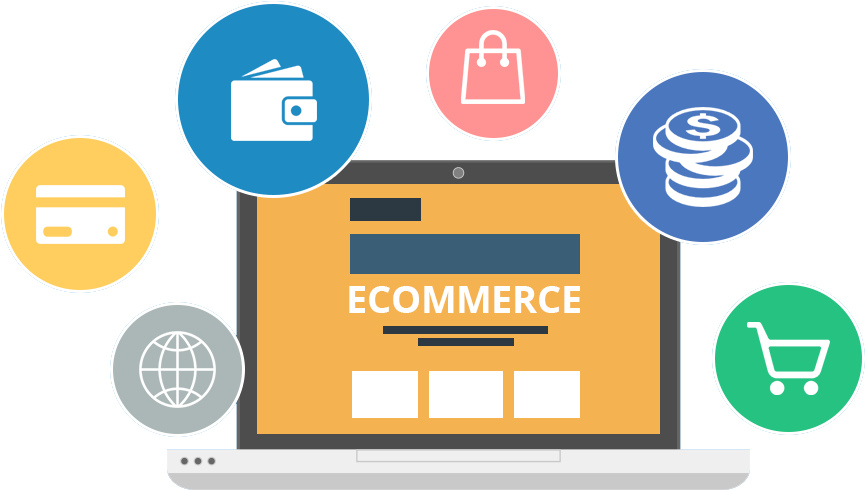E-commerce Website Development
E-commerce website development involves creating a digital platform for businesses to sell their products or services online. It includes the design and implementation of features such as product catalogs, shopping carts, payment processing, order management, and customer relationship management. The development process typically requires a team with expertise in web design, user experience, database management, and payment security. The choice of technology stack (such as JavaScript, PHP, Ruby on Rails, etc.) and hosting solutions will depend on the specific needs and budget of the business. Here are the key points to consider when developing an e-commerce website:

Design: A well-designed website with a clear layout, visually appealing graphics, and a mobile-responsive design can help attract and retain customers.
Functionality: The website should have a user-friendly interface with features like product search, shopping cart, and payment gateway integration.
Security: Protecting customer data and transactions is essential for building trust. The website should have an SSL certificate, robust security measures, and a secure payment gateway.
Search Engine Optimization (SEO): Optimizing the website for search engines helps improve visibility and drive traffic to the site.
Payment Options: Offering a variety of payment options such as credit cards, PayPal, and other online payment systems can increase customer convenience and successful transactions.
Shipping and Delivery: The website should have clear shipping policies, tracking options, and flexible shipping methods to meet customer needs.
Customer Support: Good customer support through live chat, contact form, and FAQ section can enhance customer satisfaction and build brand loyalty.
Analytics and Reporting: Tracking website performance through analytics and reporting tools can provide valuable insights into customer behavior and help make informed decisions.
Scalability: The website should be scalable to accommodate growth and changing business needs.
Integration with Other Platforms: Integrating the e-commerce website with other platforms like social media, marketplaces, and accounting software can improve efficiency and streamline business processes.
When developing an e-commerce website, it is important to focus on providing a seamless shopping experience for customers. A well-designed and functional website will help build brand recognition, attract and retain customers, and increase revenue. It is also important to stay up to date with the latest trends and technology to stay competitive in the ever-evolving e-commerce landscape.